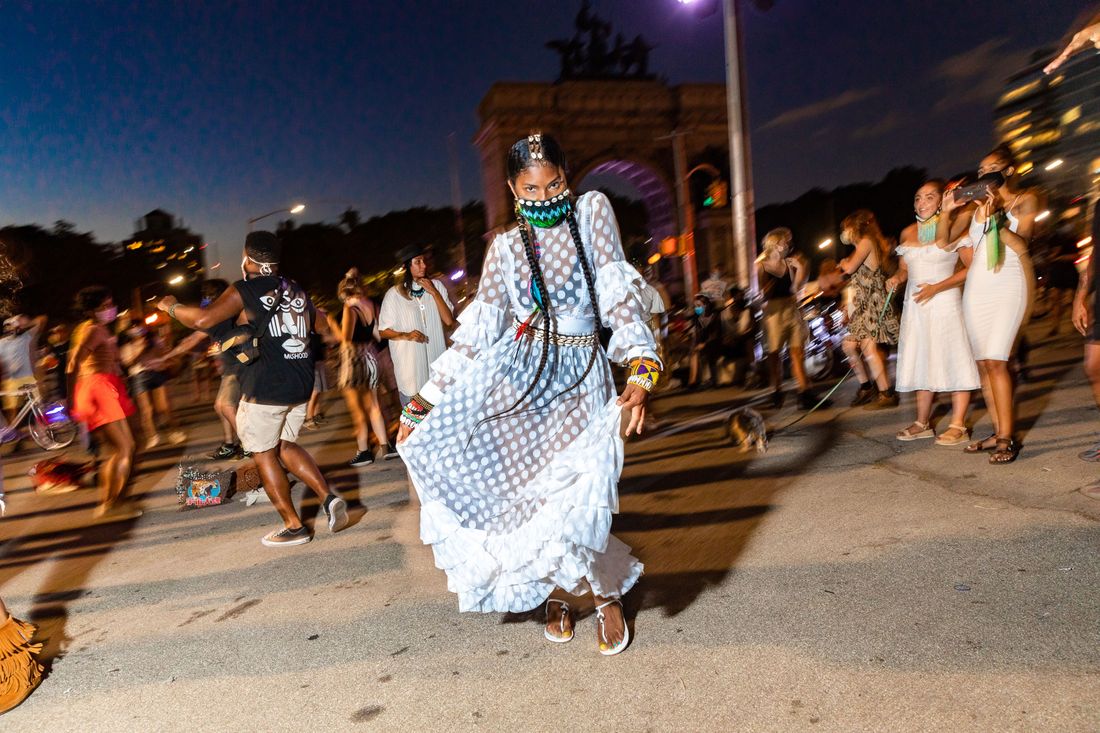
On October 3, 1860, a group of abolitionists called the Wide Awakes marched across northern cities to help elect Abraham Lincoln. Last year, confronted with our national state of injustice, cynicism, and fractured purpose, a band of artists and activists revived the mission of the Wide Awakes to grow a new liberation movement, some of the images of which are shown here. This weekend, to mark the 160th anniversary of that first march, the Wide Awakes have organized a weekend-long social-justice celebration in New York City.
Open your eyes, you can fly
Open your eyes, you can fly!
You can fly!
Open your eyes, you can fly
Open your eyes, you can fly!
You can fly!
—“Open Your Eyes You Can Fly,” by Flora Purim
Bless your young hearts — you of the fresh, new generation, the blossoming future America, — the America which is to decide whether Liberty or Slavery shall be universal, — you are ‘waked up.’ Good!
—“An Eye Opener for the Wide Awakes,” by Elizur Wright, 1860
The word, the world, is weary. The accuracy of these definitions — feeling or showing tiredness, especially as a result of excessive exertion or lack of sleep; reluctant to see or experience any more of, tired of; calling for a great amount of energy or endurance, tiring and tedious — is unnerving. Wearying, weathering, worrying, wondering. And nope, it’s not over. 2021 is starting to look like a party I’d rather not attend. (Parties … remember them?)
Security: how to get it, keep it, ensure it. I fall asleep to this thought; I wake up to this thought. I fall asleep to this thought; I wake up to this thought. Rinse and repeat for going on seven months. I run through different scenarios hourly — live here, live there; work here, work there; go here, don’t go there; see him, don’t see her; and on and on and on — and try to glean from my Instagram-derived perceptions of others’ obviously excellent non-fraught decisions what we should do. Like everyone, I’m just trying to stumble upon the silver-bullet decision that will magically hold off the worst and keep my family safe, but it’s impossible.
Impossible not because there is some secret answer out there, attainable if only we search hard enough or ask the right people or time it perfectly, but because safety is a lie. To be fair, it’s only one of the many lies we’ve been told — don’t forget meritocracy, bootstrapping individualism, and the American Dream™ — but it’s the one that stings me personally the most right now. The other ones also smart, but the fallacy of safety is hard to swallow. For example, I can make every “right” decision and still end up with COVID-19 (again), or worse: pass it to my parents (whom we’re living with — thank you for the free and top-notch child care) or in-laws or immunocompromised friend or the stranger with the sweet eyes that I passed too closely while adjusting my mask because I couldn’t breathe and needed unmediated fresh air, just for a second. Because I needed viscerally to see my friends in person, to laugh loudly in public, to take up space, together, and no we didn’t touch but we also didn’t stay six feet apart. Because I only made a half-hearted attempt to corral my daughter as she toddled freely in the playground, for once, only for her to gleefully run up to another child and hug them close. (And there’s a whole other tidal wave of worries: Is it okay that she hasn’t properly physically interacted with another child since February? Is the lack something she notices — yes — and what is it doing to her heart, her soul, her mind? Are the effects permanent? Will we ever really know? Kids are resilient, right?) Or, my husband can do everything “right” — work hard, smile harder, care the most — and still be willfully misunderstood, deemed a dangerous threat by an empowered stranger, anytime, anywhere. His deep humanity, his vulnerability, how his 98-year-old grandmother looks at him over FaceTime, how our daughter shouts “DA DAAAA!” as she careens around the house searching for him, how she holds tiny rocks to her ear, her “headphones” a surprisingly ingenious approximation of his, his quirky generous Piscean soul, his irreplaceable self: all disappeared and swallowed whole in the maw of the chimera that is America. Or, either of us, gone inexplicably in some way I haven’t yet imagined to worry about, in the mundane way that life goes. Accident, illness, freak occurrence.
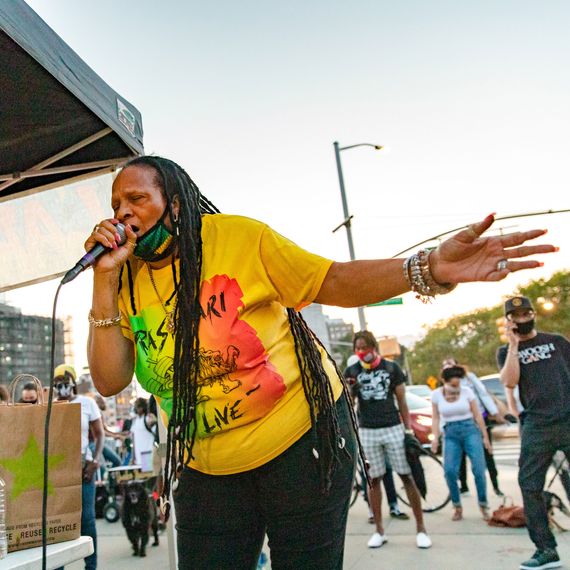
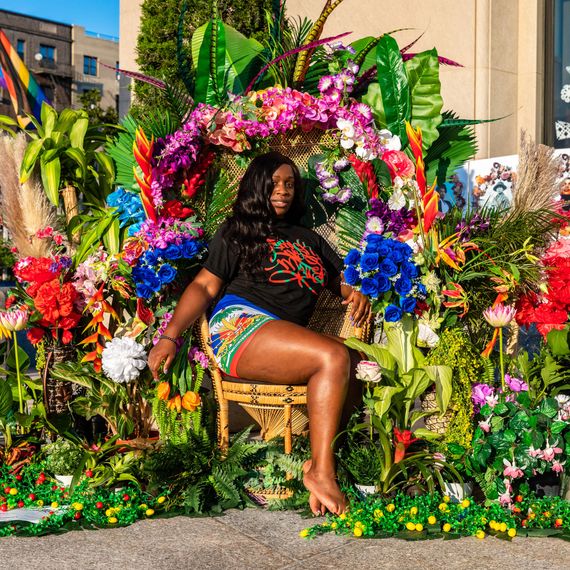
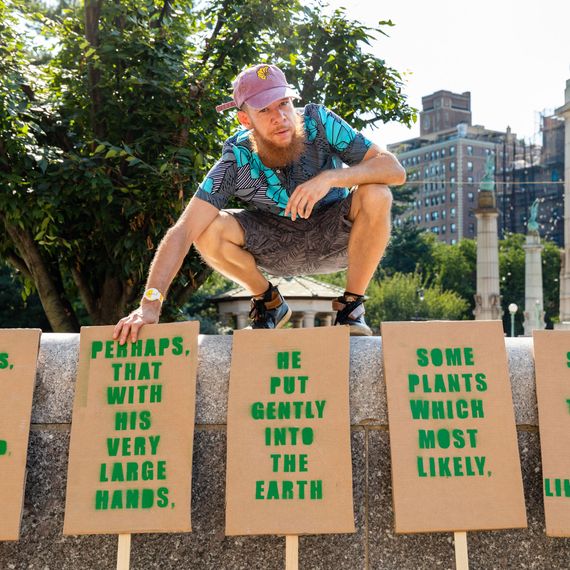
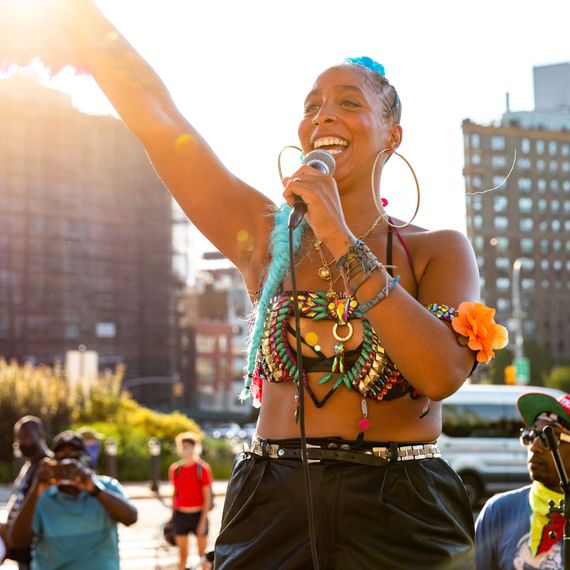
Safety is a mirage, always just out of reach, and even then only truly available to the privileged few. In this place, people who look like us aren’t safe; we never have been. I know this and I know this and I know this, and yet it still hurts, and surprises. We are, after all, only human. Is it possible to grow fully accustomed and inured to the simultaneous assumption of one’s own non/superhumanity? To being both invisible and hypervisible? “Oh, I didn’t mean it like that. Not you! You don’t have to worry about that — that won’t happen to you/your family/your friend. You’re different.” (I don’t? It won’t? Different from what?) “You’re so strong. I couldn’t manage!” (You’re right. You could never. You have the choice, though.) How many times have I heard such things in my lifetime? We live our lives amid this insanity — always, not just in 2020 — (in)secure in the knowledge that we can never presume that we or our loved ones will find safety, will be given sanctuary if they need it. We get up and brush our teeth and kiss our children and gingerly read the news and show up for all these infernal Zoom meetings anyway. As the song goes, you’re welcome. (Shout-out to Dwayne Johnson: Maui, of Moana fame, has kept this multigenerational quarantine household afloat.)
I keep coming back to “The Space Traders,” lawyer and civil-rights activist Derrick Bell’s 1992 short story. Since May, since George Floyd narrated his own murder and cried out for his mama, since the new pandemic gave way to the age-old pandemic, I’ve read bits of it constantly — the way I read for “pleasure” now: in quick bursts on my phone in the dark, my child’s nursing head haloed by the glow. Unfolding between January 1 and 17, 2000, the premise of Bell’s thought experiment is thus: Aliens, speaking in the “comforting tones” of Ronald Reagan, come to Earth, their ships appearing off the Eastern Seaboard of the United States. Arriving into a country in environmental and economic free fall, they offer gold, chemicals capable of returning the environment to its pre-European-contact state, and safe nuclear power. In return, all the extraterrestrials ask is “every black man, woman, and child in the nation.” Their intentions for America’s Black citizens, whether positive or nefarious, are not shared; a decision must be made by Martin Luther King Day. Spoiler alert: The trade is accepted, eagerly, and made legal through a quickly cobbled together referendum. It will surprise no one to hear that the decision is not made by or with the people whose futures are being brokered. As ever in this American experiment, their wishes are not only irrelevant; they are not even considered. Bell’s story is allegorical, but its meaning is clear: We are on our own. We must make our own way, our own futures, our own happiness, peace, and joy. To look outside is be disappointed, and even betrayed.
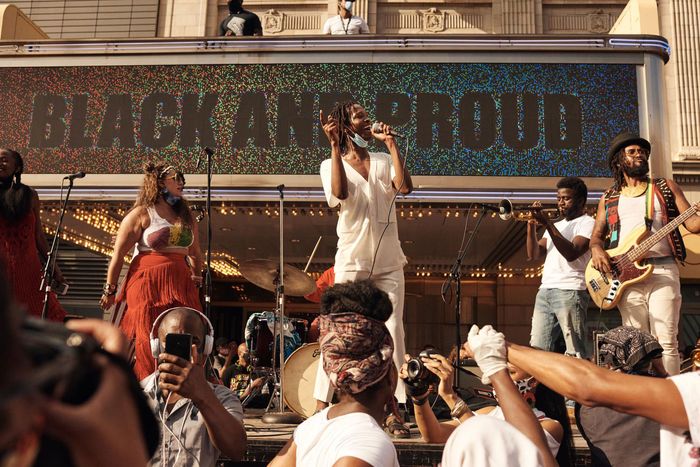
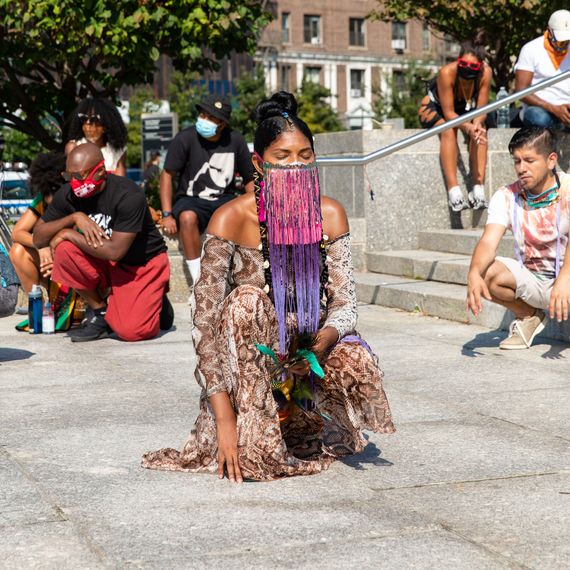
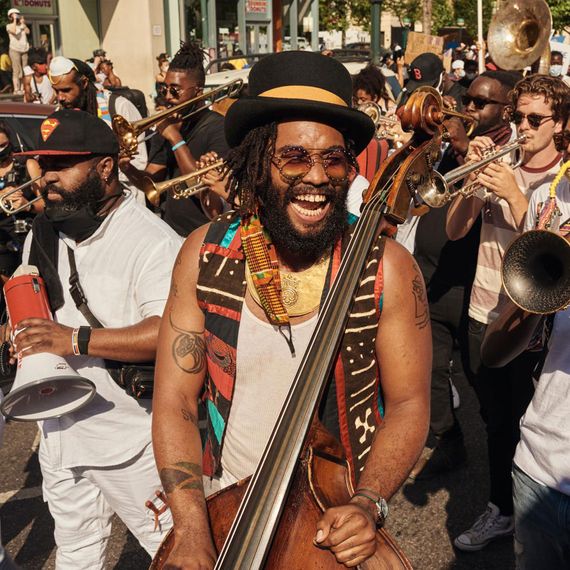
Even amid all this sadness, all this uncertainty, all this fear, anxiety, and anger, there has been brightness. A few moments of full-throated exuberance where I threw my head back and laughed and had to catch my breath from the joy of it all, felt the blood pumping through my body and really appreciated it for the everyday miracle that it is. In these moments, I was enlivened, aware, awake — Wide Awake, even. In Port of Spain, in Harlem, in Brooklyn, I have marched and whirled and shouted and sweat. Trailing a cape, I have danced with friends and strangers alike, smiling for all I’m worth over the brim of a mask. Each time, my awareness grows — of my breath, of the brevity and fragility of my time here, of the raucous contagious joy that is my birthright, of the paucity of these systems we fight to uphold though they don’t serve us, and of my power. At this critical juncture, in these “unprecedented times,” it is clear that we need new models. We need radical new visions, fresh new eyes. Our great-great grandchildren will look back in wonder, either because we continued to get it so abysmally wrong, or because we finally, finally started to get it right.
We are the ones we have been waiting for, and we do it for them. We entered lockdown asleep, but we are emerging Wide Awake, insisting on a future we actually want to inhabit. In 1860, a group of young patriots launched a movement to wake up the country. These “Wide Awakes” were mechanics, laborers, and clerks who used art, song, and public rallies to push for the abolition of slavery at that critical moment in history. They put their energies behind a little-known presidential candidate from the newly formed Republican Party, Abraham Lincoln. Their support first helped to secure his presidency and then pushed him to end slavery, changing our country for the better and pushing us closer to our highest ideals. One hundred sixty years later, at another critical moment in history, a new Wide Awakes movement is building. We are a community of creative people imagining a future of self-emancipation. We understand that building a new world isn’t about winning or losing; it’s about getting as many of us to engage and become our own superheroes as possible. Individually, we are asleep; together we are awake. In this irreparably changed world, the urgency has never been greater. The pandemic forced us to slow down, to process the truths it revealed, and to confront uncertain new realities. Now, though it is far from over, we must continue the work and awaken within ourselves. This fall presents us with imminent possibility, a chance to commit to a world of healing, listening, and justice rooted in creative civic participation. It is easy to tear things apart. The murkier, more difficult path is to build, together. What shall we build?
Rujeko Hockley is a curator at the Whitney Museum of American Art and one of the Wide Awakes.

